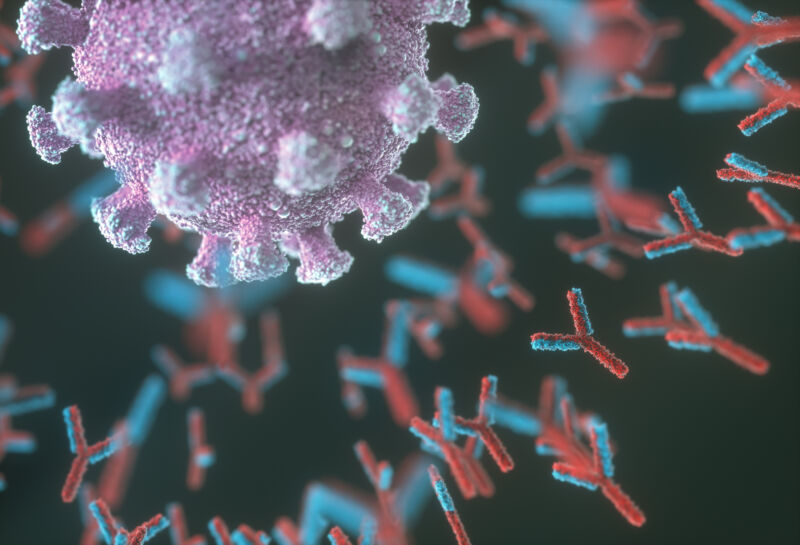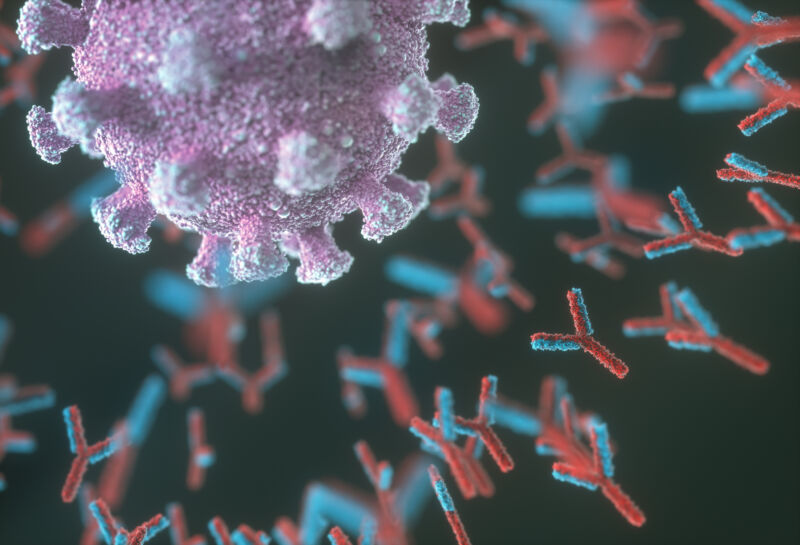
Enlarge / Illustration of antibodies (red and blue) responding to an infection with the new coronavirus SARS-CoV-2 (purple). (credit: Getty Images)
From the start of the COVID-19 pandemic, many of researchers’ nagging questions involved trying to understand what constitutes immunity to future infections. People who had been infected by the virus produced varying amounts of antibodies, and it wasn’t clear what levels were needed to provide protection. Similar issues applied to figuring out how long protection lasted, given that antibody levels appeared to decline over time. Those questions have implications for whether we will eventually need booster shots to maintain our immunity.
The most common way of looking at immunity at the beginning of the pandemic was to check for neutralizing antibodies, which could block the virus’s ability to infect new cells. But we’ve gone through much of the pandemic without knowing exactly how levels of these antibodies relate to protection.
Evidence has been building that neutralizing antibodies directly correlate with protection, and a new paper provides some of the most decisive evidence yet. The authors also provide some hints about the sort of decline in immunity we might expect.





